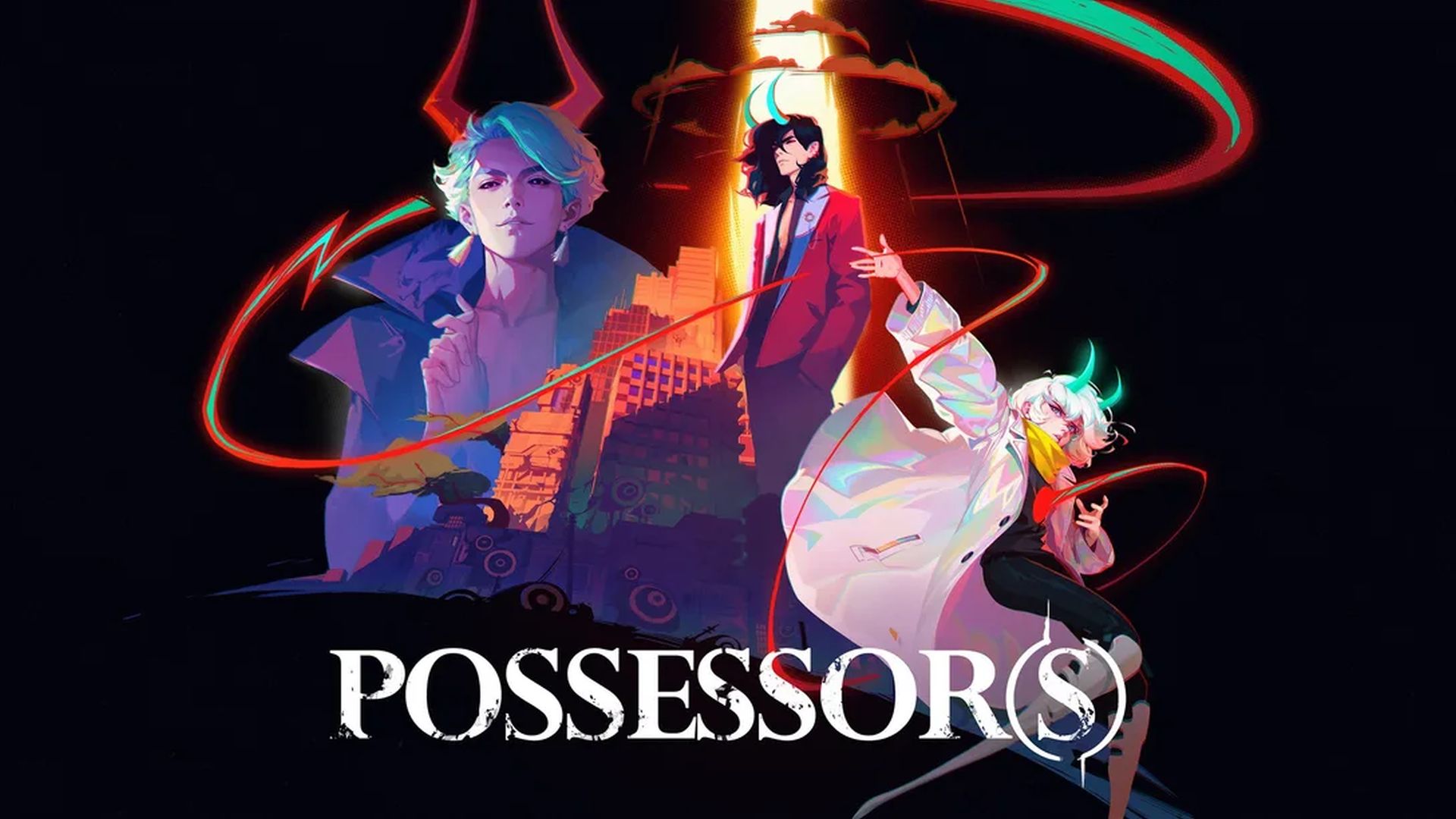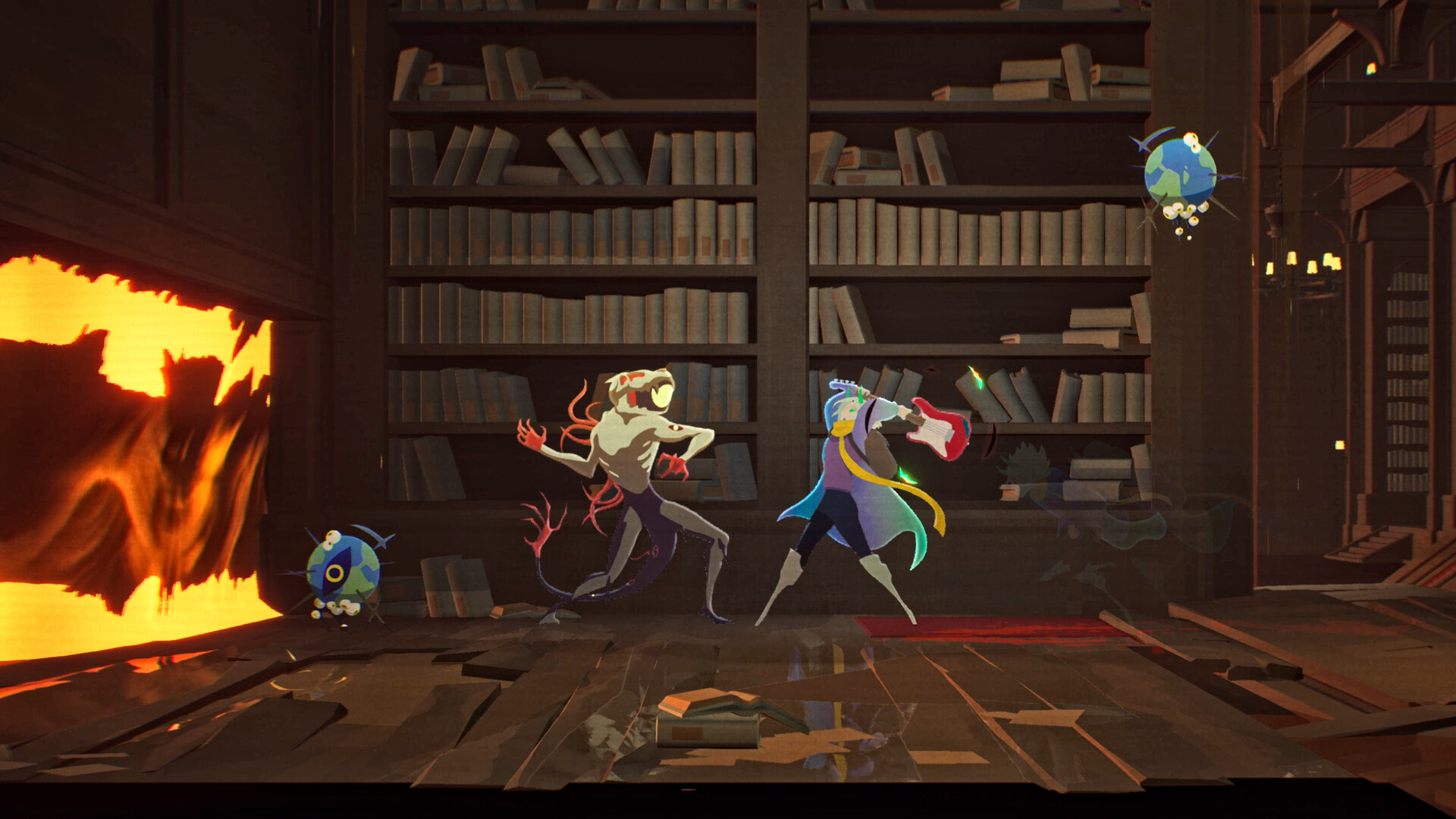
It’s odd, but Heart Machine is a developer that consistently generates both excitement and letdown. Their 2016 game, Hyper Light Drifter, quickly gained a dedicated following with its stunning visuals, story told without words, fast-paced combat, and engaging world. While Solar Ash looked promising with its sci-fi platforming and epic boss battles reminiscent of Shadow of the Colossus, it didn’t quite live up to the hype. And Hyper Light Breakers is best left unmentioned.
Despite its flaws, Possessor(s) felt like a step in the right direction. It combined 2D animated characters with side-scrolling gameplay within a large 3D environment. However, even with an interesting story and stylish visuals, the game unfortunately suffers from several annoying issues.
Sanzu City is in ruins after a devastating demonic attack. A huge rift has opened, unleashing demons that terrorize the population. Luka, a high school student, is critically injured, having lost her legs. She encounters Rhem, who is also badly wounded. Though heartbroken by the death of her friend, Kaz, at the hands of a demon, Luka agrees to let Rhem possess her body, hoping he can heal her injuries.

The game isn’t free to play; you’ll need to guide Rhem to the source of the dimensional rift so he can return home. This involves infiltrating a secret underground vault owned by Agradyne, the powerful corporation that controls the city and its energy supply. To progress, you’ll also have to journey across the game world and collect four eyeballs from city officials who are possessed by powerful demons.
While the plot of searching for something—or someone—is a familiar one, Possessor(s) manages to avoid feeling cliché. We spend a good amount of time with Luka as she learns to control Rhem’s body, becoming familiar with its strength and movement. Their histories gradually become connected, with memories and secrets revealed along the way. The characters are well-developed; Luka comes across as both inexperienced and a bit clumsy, but also genuinely kind and relatable. Rhem, despite appearing calm and in control, is often stubborn and insensitive.
Despite occasional disagreements, the distance between the characters gradually lessens as the story progresses. The game also features interesting supporting characters like Tens, a wolf-hunting ex-employee of Agradyne, and Professor Foss, Rhem’s former teacher who is now possessed and losing his mind. While these characters appear mostly as quest-givers, shopkeepers, or one-off bosses, they don’t heavily drive the main plot – which centers on the eyeball hunt and the relationship between Luka and Rhem. Still, their personal stories enrich the game’s world.
At its heart, Possessor(s) focuses on skillful platforming and fast-paced combat. You’ll constantly unlock new abilities and return to earlier areas to put them to the test. It includes many familiar mechanics, like a grappling hook that can also pull enemies closer, as well as sliding and underwater dashes. While the platforming generally feels good, it’s not perfect – the grapple sometimes fails to connect. Combat can also be a bit clunky; I often experienced delays when trying to quickly dodge attacks, leading to frustrating deaths.

Visually, Possessor(s) is striking and unusual, combining beautiful imagery with deliberately jarring stylistic choices. The characters’ movements and appearance feel different from the computer-generated world around them, and despite using a limited number of animation frames, the action still manages to feel fluid.
Combat often feels clunky and restrictive. When you attack, you’re locked facing one direction throughout the entire combo, while enemies aren’t, which can be really frustrating. Luka can equip a main weapon alongside three special ones – anything from a mouse to launch enemies upwards, to a hockey stick for broad swings. Some of the fighting has a similar feel to Super Smash Bros., letting you break through defenses and send enemies flying into each other and the surroundings, which is enjoyable. Well-timed parries are also key, as they’re needed to defeat certain enemies and deflect incoming attacks.
Honestly, dodging enemies is super important because they love to hang back just out of range. When you do manage a parry, it feels amazing, especially when you deflect a bunch of bullets at once! But, there’s no ‘safe’ time after getting hit, and you’re stunned for way too long. This means you can get swarmed by tons of enemies and die really quickly. And the worst part? Sometimes you have to replay sections over and over again, not because the enemies are hard, but because of how the levels are designed. It’s super frustrating!
While the combat system is understandable, it’s fairly simple – mostly just hitting enemies, grabbing them, and attacking again. There aren’t many different weapons to choose from, and the special weapons aren’t very complex. Using a counter with your glasses or a strong katana swing can be fun, but that’s all they do. The upgrades feel a bit too simple as well, although finding ingredients for an NPC to cook and give you a bonus is a standout moment.
Visually, Possessor(s) is striking and deliberately mixes different styles. The characters move and look very different from the 3D world around them, and while the animation isn’t always smooth, it generally works well – except for some boss fights where enemies simply glide towards you. Despite this, the characters really pop against the harsh, brutalist buildings, the dark atmosphere, and the film’s grainy, old-school horror aesthetic.
The game’s sound design is consistently excellent. Books fly around, wailing like infants, and your whip cracks with raw, animalistic power. The music strikes a great balance between dramatic and atmospheric, from the unsettling melodies of the Abandoned Mall to the grand score of the final showdown.

Ultimately, the story loses steam and ends rather predictably. Certain plot points are left unresolved, which is a shame considering how captivating Sanzu City initially seemed.
Beyond its clunky movement and combat, the biggest flaw in Possessor(s) is that it loses momentum towards the end. One section feels like a repetitive series of fights leading to the final boss, while the other tries to be clever with its design, but doesn’t offer anything significantly new compared to earlier areas – and it’s surprisingly brief. Though there are optional things to find, like items to improve your gear or complete side quests, these start to feel unnecessary. This can be frustrating when you stumble across areas that don’t contribute to your main goal. Thankfully, most of the boss fights are memorable, but the game’s core combat and movement problems continue to hold it back.
Ultimately, the story wraps up in a rather predictable fashion, and some plot points are left unresolved – a letdown considering how engaging the world of Sanzu City initially felt. Overall, Possessor(s) is a good action-adventure game with a unique premise centered around possession, and it features a strong connection between its main characters.
Unfortunately, the game doesn’t really expand on its initial ideas. I had high hopes for where it could go, but I ended up feeling underwhelmed. It’s definitely not the worst game Heart Machine has made, but it’s another one that I was ultimately disappointed by.
This game was reviewed on PC.
Read More
- Best Controller Settings for ARC Raiders
- Every Targaryen Death in Game of Thrones, House of the Dragon & AKOTSK, Ranked
- The Best Members of the Flash Family
- Battlefield 6 Season 2 Update Is Live, Here Are the Full Patch Notes
- Where Winds Meet: How To Defeat Shadow Puppeteer (Boss Guide)
- The Pitt Season 2, Episode 7 Recap: Abbot’s Return To PTMC Shakes Things Up
- Duffer Brothers Discuss ‘Stranger Things’ Season 1 Vecna Theory
- Auto 9 Upgrade Guide RoboCop Unfinished Business Chips & Boards Guide
- Dan Da Dan Chapter 226 Release Date & Where to Read
- See Where the Stars of Good Luck Charlie Are Now
2025-11-24 21:13